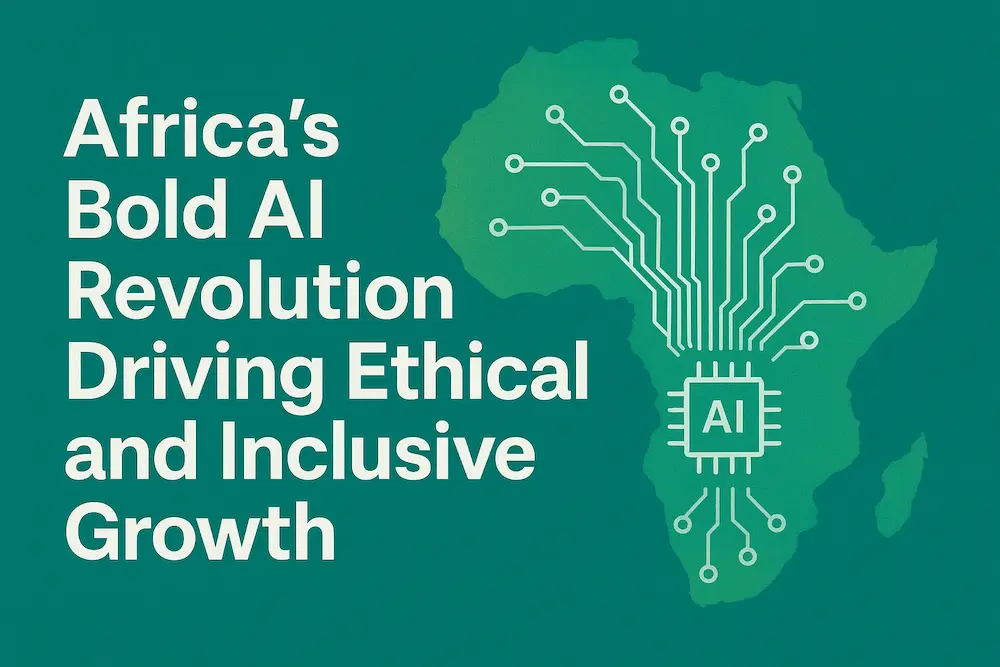Africa’s Bold AI Revolution Driving Ethical and Inclusive Growth
Africa’s Bold AI Revolution Driving Ethical and Inclusive Growth
Artificial intelligence is gradually shaping Africa’s economy, society, and governance. Across the continent, intelligent systems are being applied to promote inclusion, equity, and long-term innovation. Africa’s young population, coupled with a growing digital infrastructure, creates a fertile ground for transformative technologies.
Introduction: Africa’s Technological Leap
Recent advancements in intelligent systems are driving remarkable progress in Africa. While much global attention focuses on North America, Europe, and Asia, African nations are innovating in healthcare, education, agriculture, and governance.
According to the Brookings Institution, local innovators are adapting technology to regional challenges, proving that these solutions can create tangible benefits for communities.
Ethical Frameworks for Technology
Ethics and governance are central to responsible technology adoption. Policymakers across Africa are developing standards to ensure intelligent systems respect human rights, transparency, and fairness. The African Union provides guidance to implement policies that balance innovation with ethical considerations.
By emphasizing inclusivity and accountability, African nations are demonstrating that technological progress can coexist with social responsibility.
Technological Innovations in Healthcare
Healthcare systems in Africa are benefiting from advanced technologies that support diagnostics, treatment planning, and resource allocation. In regions with limited medical personnel, machine learning solutions analyze medical images to enhance accuracy and speed.
The World Health Organization highlights that these applications improve patient outcomes and optimize hospital management, making healthcare more accessible.
Smart Agriculture Solutions
Agriculture remains a backbone of Africa’s economy. Intelligent platforms assist farmers in monitoring soil conditions, optimizing irrigation, and predicting weather patterns. Digital innovations also connect farmers to markets directly, increasing profits and reducing inefficiencies.
The FAO emphasizes that technology-driven agriculture strengthens food security and resilience against climate change.
Digital Learning and Education
In education, advanced learning systems provide personalized experiences. They adapt to individual student progress, allowing teachers to manage large classrooms effectively and ensuring equitable learning opportunities.
Collaborations with UNESCO support integrating intelligent platforms into national strategies, enhancing digital literacy and preparing youth for future careers.
Governance and Policy
Governments are leveraging intelligent systems to enhance public services and policymaking. Large-scale data analysis supports evidence-based decisions that benefit citizens, while privacy protection and transparency maintain public trust.
The World Economic Forum highlights that responsible use of these technologies can increase accountability, improve citizen engagement, and make institutions more efficient.
Entrepreneurship and Innovation
Africa’s startup ecosystem is harnessing artificial intelligence to innovate in fintech, logistics, healthcare, and creative industries. Hubs such as Nairobi’s “Silicon Savannah” foster locally adapted solutions that address regional and global challenges.
Investments are increasing, with McKinsey reporting that AI-powered enterprises could contribute significantly to Africa’s GDP growth in the next decade.
Challenges and Solutions
Infrastructure gaps, uneven internet access, and limited digital literacy remain obstacles. Additionally, workforce adaptation is necessary as automation reshapes job landscapes.
Balanced strategies combining technology, education, and ethical frameworks are critical. Collaboration between governments, private sectors, and academia ensures equitable distribution of benefits and mitigates risks.
The Future Outlook
The future of intelligent systems in Africa is promising. Ethical guidelines, skill development, and inclusive policies position the continent as a model for responsible technology adoption. Innovations in healthcare, agriculture, and education show how intelligent solutions can drive social progress and economic growth.
Conclusion
Artificial intelligence and intelligent systems are transforming Africa, presenting both challenges and opportunities. By prioritizing ethics, inclusivity, and sustainability, African nations ensure that these technologies empower communities and foster equitable development. This bold revolution underscores the continent’s creativity, resilience, and forward-looking vision.
For more news click here.




